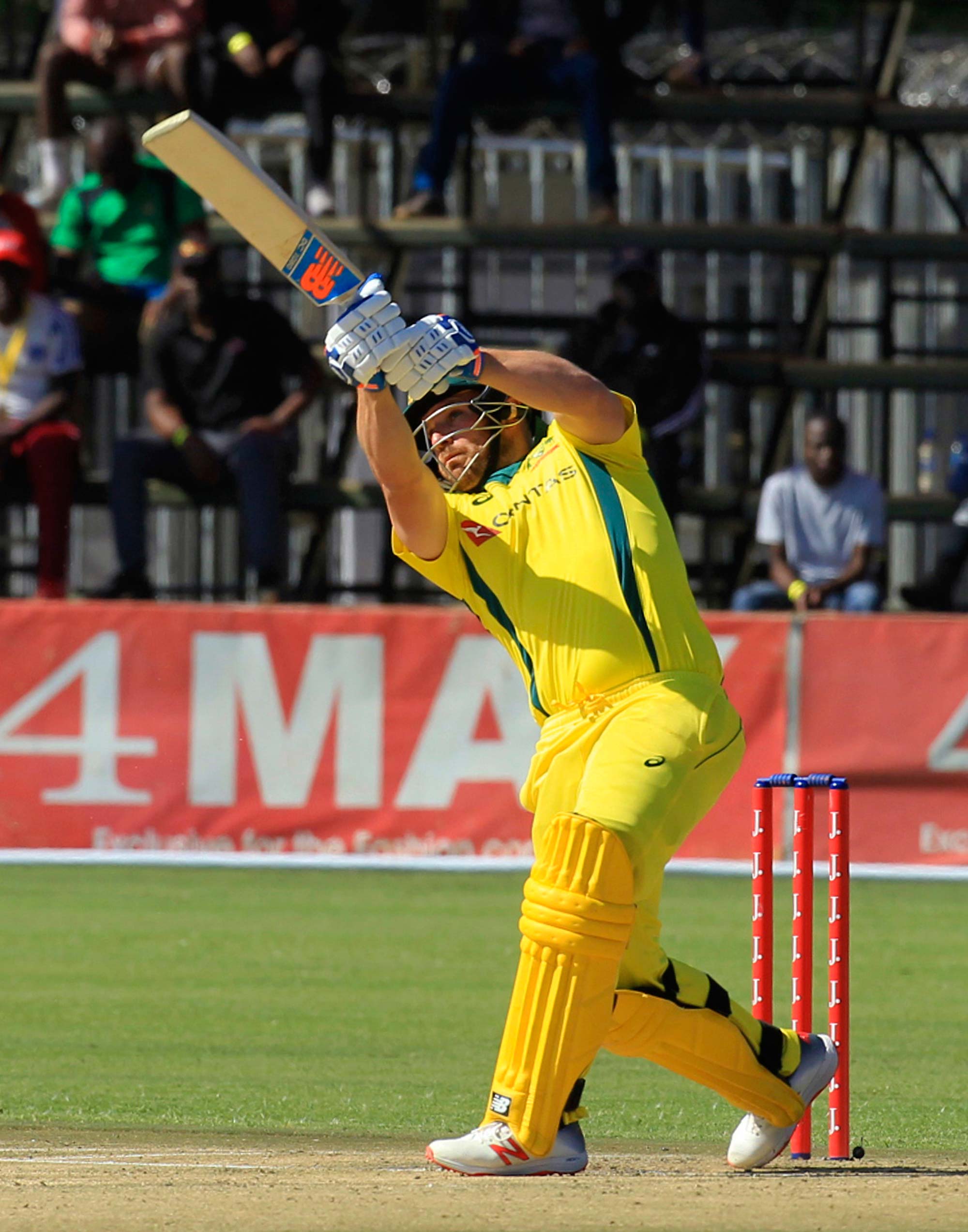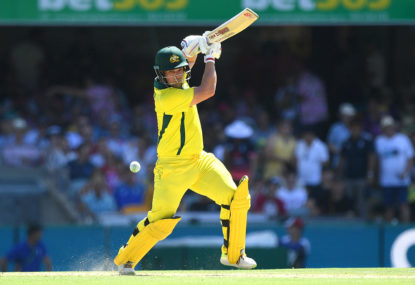Things were never going to be easy for Justin Langer when he took over from Darren Lehmann, and the new coach would have had plenty to think about on the way home after Australia returned from England and Zimbabwe.
Here are five observations on that trophyless tour.
1. Langer’s rough start
Langer would have squirmed as his side were beaten six times on the trot by England, then missed the chance to return with some silverware as Pakistan won the T20 series final in Zimbabwe.
Australia mustered just three wins from 11 games overall, with two of those coming against Zimbabwe.
With a high-stakes homes series against India, followed by the 2019 World Cup in England, and Ashes series and a T20 World Cup in Australia in 2020, Langer would have left with more questions than answers about the likely make-up of his squads.
2. Finch states his case for leadership
Aaron Finch was one of the few positives to emerge, proving to be clearly the best candidate to open the batting and lead Australia in white-ball cricket over the next 18 months.
After a bizarre experiment batting at five early in the England tour, Finch returned to his natural opening position with authority, playing some thumping innings.
Finch scored a century against England in Game 3, before making 84 in the lone T20 game. He then bludgeoned 306 runs in Zimbabwe as skipper, at an average of 76 and strike rate over 200, demonstrating his brutal power and devastating ability to take away the game from the opposition in the Power Play.
There has been talk that Finch is the fittest he has ever been and, at 31, he should still enjoy a few more years as a batsman at near the peak of his powers.
With World Cups in both 50-over and 20-over cricket on the horizon, it makes sense to have an experienced leader who is guaranteed a spot in both sides, and Finch fits that bill.

Australian batsman Aaron Finch plays a shot during the T20 cricket match against Zimbabwe at Harare Sports Club, in Harare, Zimbabwe, Tuesday, July, 3, 2018. Zimbabwe is playing host to a tri-nation Twenty20 International series with Australia and Pakistan. (AP Photo/Tsvangirayi Mukwazhi)
3. Stanlake the pick of struggling pace attack
With Australia’s three most experienced and best fast bowlers – Mitchell Starc, Josh Hazlewood and Pat Cummins – all rested from the tour, there was a real opportunity for a new pace asset to emerge.
Kane Richardson struggled and Jhye Richardson was inconsistent, leaving Billy Stanlake as the biggest seam threat.
It was encouraging to see Stanlake play nine games at full fitness in a short period of time, as well as make an impact, despite Australia’s bowlers struggling mightily at times, particularly in England.
Big Billy picked up six wickets in four ODIs in England, before taking seven wickets at an average of 17 and an economy under seven in the T20 tri-series.
With Australia likely to rely heavily on Starc, Hazlewood and Cummins in Test cricket, Stanlake could well play a big role in both T20 and 50-over World Cups.
4. Leave Tim Paine for Test cricket
After being widely praised for his performances and interim leadership in Test cricket, this was a chastising couple of weeks for Tim Paine – a reality check, in some respects, of how hard a game cricket can be when you’re leading a patchwork side and your own form starts to fail you.
It was surprising that Langer and the selectors opted to go with Paine as the captain in England. Obviously the thinking was that he could provide the calm and experienced head that he did in a tumultuous time in South Africa, howeve, for a man who nearly retired from cricket two years ago and was not a regular for Tasmania, Paine now has a lot on his plate.
He has had plenty of injuries over his long career, and it would have been best for him to focus all his energies for the next 18 months on captaining the Test side.
Instead, having lost 5-0 over in England and experienced a wretched series with the bat will erode his confidence.
[latest_videos_strip category=”cricket” name=”Cricket”]
5. Khawaja the odd man out
Even with Australia missing their two best batsmen, Usman Khawaja couldn’t land a spot on the plane to England or Zimbabwe.
While Travis Head, Glenn Maxwell, Marcus Stoinis and D’Arcy Short experienced mixed tours, Khawaja was running amok for Glamorgan, peeling off three straight centuries in his first three County games.
Khawaja has a moderate ODI record, averaging 31 from 18 games, but at a time when Australia are lacking genuine run-scorers, it’s mystifying he was ignored, given his List A record and Big Bash form over the past few seasons.
Averaging over 45 in domestic cricket in Australia, his 50-over record is superior to both his Test and first-class averages, having scored nine tons when opening the batting.
Khawaja is younger than Finch and could provide a strong option at the top of the order in a side light on players who have scored plenty of hundreds in their career.































































































